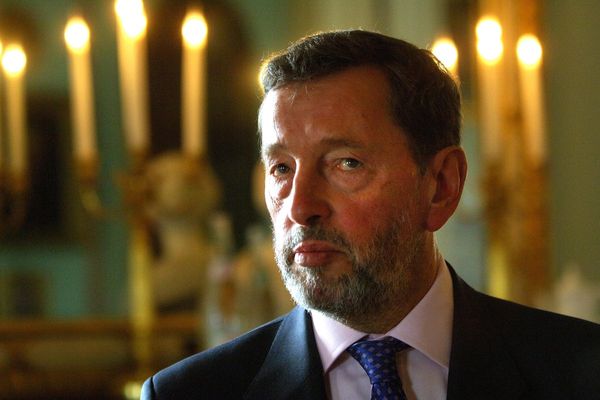Some will see it as an attempt at intimidation.
Elon Musk, the richest man in the world, seems to remind his opponents that to fight him they have to be prepared for anything. No holds are barred, including humiliations on social media, and in particular on Twitter, the favorite communication channel of the Tesla (TSLA) chief executive.
The latest target of the serial entrepreneur's wrath is none other than the prestigious investment bank Goldman Sachs (GS).
The conflict between Musk and the establishment is about Twitter (TWTR). The tech tycoon made an offer to buy the platform on April 14 at a price of $54.20 a share, which values the company at $43 billion.
Musk also warned that it was his "best and final" offer. In other words, he won't add a penny more and can walk away at anytime. (His fortune is estimated at $251 billion as of April 14, according to Bloomberg Billionaires Index.)
Twitter's board met the same day to study this proposal.
Goldman Sachs Advises Twitter Board Against Musk
It emerges that Twitter is organizing to prevent the billionaire, who criticizes the way in which the social network applies the principle of free speech, from taking control of the company.
The board may adopt a poison pill, according to several media, a move designed to make a hostile takeover prohibitively expensive.
And the board has retained Goldman Sachs to advise it in this standoff with Musk. The billionaire for his part has retained Morgan Stanley (MS), a rival of Goldman Sachs, as his advisory bank.
"If the current Twitter board takes actions contrary to shareholder interests, they would be breaching their fiduciary duty," the billionaire reacted to the press articles on Twitter. "The liability they would thereby assume would be titanic in scale."
His anger at the board did not stop there.
"It would be utterly indefensible not to put this offer to a shareholder vote. They own the company, not the board of directors," Musk added.
$30 vs $54.20
He then directed his ire at Goldman, as a way of saying it's the bank that seems to be whispering to board members to explore alternatives or consider ways to say no to Musk.
Musk often hits where it hurts most. And in this case, Musk has raised the prospect of conflicts of interest. The billionaire entrepreneur pulled out a research note from Goldman Sachs analysts, which he accompanied with an emoji expressing "hmmm.".
This research note sent to the bank's clients on Feb. 10 is an analysis of Twitter after its fourth-quarter-earnings report.
Goldman Sachs analysts seem unconvinced by the company's performance and promises, and they make this clear by setting their price target at $30 a share.
As they were writing, the stock was moving around $37.83 (the stock had closed at that price on Feb. 9). Basically, Goldman Sachs analysts estimated the fair price of Twitter stock to be 21% less than the price at which it traded.
Musk seems to be asking: If two months ago Twitter stock was reasonably valued at $30, how can the firm judge that an offer of $54.20 is not a good proposal?
Twitter shares closed on April 14 at $45.08 but have risen significantly since the billionaire announced on April 4 that he had acquired 9.1% of Twitter.
Goldman Sachs didn't respond immediately to a request for comment from TheStreet.
As often happens with Musk, most users on Twitter took his side.
"They have a $30 price target with an offering at $54.20. That's almost double," commented one user. "If they refuse to accept the $54.20, Elon will sell his 9.2% and the price will tank and the board of twitter will be in trouble with the SEC for not looking out for their investors best interest."
"Price target $30. Let’s see if they make a revised estimate after twitter pays them to convince the board not to sell for it $54.20," commented Billy Markus, the co-founder of meme cryptocurrency Dogecoin, Musk's favorite crypto.
Musk did omit a key point about financial services. At an investment bank, walls separate the bankers working on deals from the analysts whose job it is to examine the activities of companies and their sectors. Analysts do their work independently of the advisory division.







